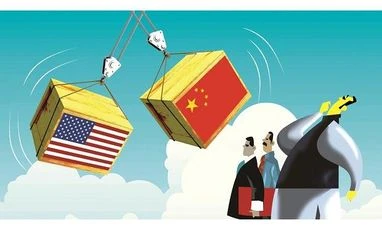The US-China trade war, which is assuming a scale comparable to the global financial crisis of 2008 that led to the creation of the G20, will dominate the talks. Euromonitor estimates that in 2008 about $3 trillion was shaved off global GDP by the financial meltdown. A Bloomberg estimate notes that “global GDP will take a $600 billion hit in 2021, the year of peak impact” as a result of the current trade meltdown.
Either way, the ranks of sceptics who had questioned the G20’s role, are thinning. G20 seems the only forum where Donald Trump and Xi Jinping will meet face to face as equals instead of letting their aides fight. Osaka could, therefore, be remembered for decades as the summit where they made peace or set the world on a disastrous economic path.
The G20, as former Indian sherpa and now central bank Governor Shaktikanta Das has noted, remains the only forum to provide the broad global political directions that would not have been available otherwise. “All the stakeholders from the multilateral organisations sit around the table with the country leaders at the G20 meeting and that helps to single out concerns,” he said in a chat with Business Standard in December last year. And it is how these meetings are arranged that often decides what finally gets said.
In the run up to the leaders’ meet, India’s major concerns are a throwback to its World Trade Organization (WTO) agenda. It is in the linkage between trade and the digital economy that it has difficult domestic constituencies to please. For the first time the meeting of trade ministers was clubbed with that of digital economy by the Japanese, which holds the presidency for this summit. The clubbing demonstrates the overpowering presence of digital issues in global trade talks, which India is most reluctant to hyphenate. So although the G20 finance ministers meeting at Fukuoka in Japan on June 8, saw India with countries like Indonesia secure an international commitment to finally tax imports of digital business, it has secured a less-than-clear commitment on data protection at the joint meeting of commerce ministers at Tsukuba on the same date.
The former set have agreed that rules for taxing global trade in e-commerce would be settled by 2020. This is important, since from May 1998 India has been part of a WTO Declaration on global electronic commerce that states that countries will extend the practice of not imposing customs duties on electronic transmissions. It essentially set a moratorium that is at risk of turning into a permanent agreement. There are conflicting reports from the WTO and UN Conference on Trade and development (Unctad) about the extent of possible revenue that countries forego by not taxing electronic trade. One puts it $756 million, the other at over $8 billion. But both agree that over 90 per cent of this tariff revenue loss is borne by developing countries. India has also claimed that one reason it cannot reduce domestic GST rates is to compensate for customs revenues foregone.
On data protection, India is likely to get more muted support at Osaka. The issues here are as follows. Who owns data — a nation or the global commons? In February 2019, the India government released a draft national e-commerce policy with links to flagship schemes such as Make in India, Digital India, Skill India, Smart Cities and Startup India. The strategy includes measures on data localisation to ensure local or sovereign ownership and control of data generated within the country with mandatory disclosure of source code by companies. This essentially means if two Indians share data on a mobile app that is developed by a foreign company, the India government will have the rights to the technology to develop the app (this includes sharing source codes).
Japan takes the polar opposite position that disclosure of trade secrets, including source codes and proprietary algorithms, as well as mandatory introduction of particular technologies including encryption technology by a government should be prohibited.
Taking advantage of the clubbing of the trade agenda with that of digital economy, the final statement of the G20 commerce ministers at Tsukuba slips in plenty of reference to the concept of free data flow, which inclines favourably towards the Japanese position. “Cross-border flow of data, information, ideas and knowledge generates higher productivity, greater innovation, and improved sustainable development. At the same time, we recognise that the free flow of data raises certain challenges…Interoperable standards, frameworks and regulatory cooperation can help in this regard”.
It is quite a step forward from the Buenos Aires digital ministers’ meet last year on November 30 and December 1 where the reference to “cross border” was only in the appendix to the main statement. Given this lay of the land, the endorsement of India’s data localisation agenda could come with clear riders in the G20 final communique.
To read the full story, Subscribe Now at just Rs 249 a month
Already a subscriber? Log in
Subscribe To BS Premium
₹249
Renews automatically
₹1699₹1999
Opt for auto renewal and save Rs. 300 Renews automatically
₹1999
What you get on BS Premium?
-
Unlock 30+ premium stories daily hand-picked by our editors, across devices on browser and app.
-
Pick your 5 favourite companies, get a daily email with all news updates on them.
Full access to our intuitive epaper - clip, save, share articles from any device; newspaper archives from 2006.
Preferential invites to Business Standard events.
Curated newsletters on markets, personal finance, policy & politics, start-ups, technology, and more.
Need More Information - write to us at assist@bsmail.in
)